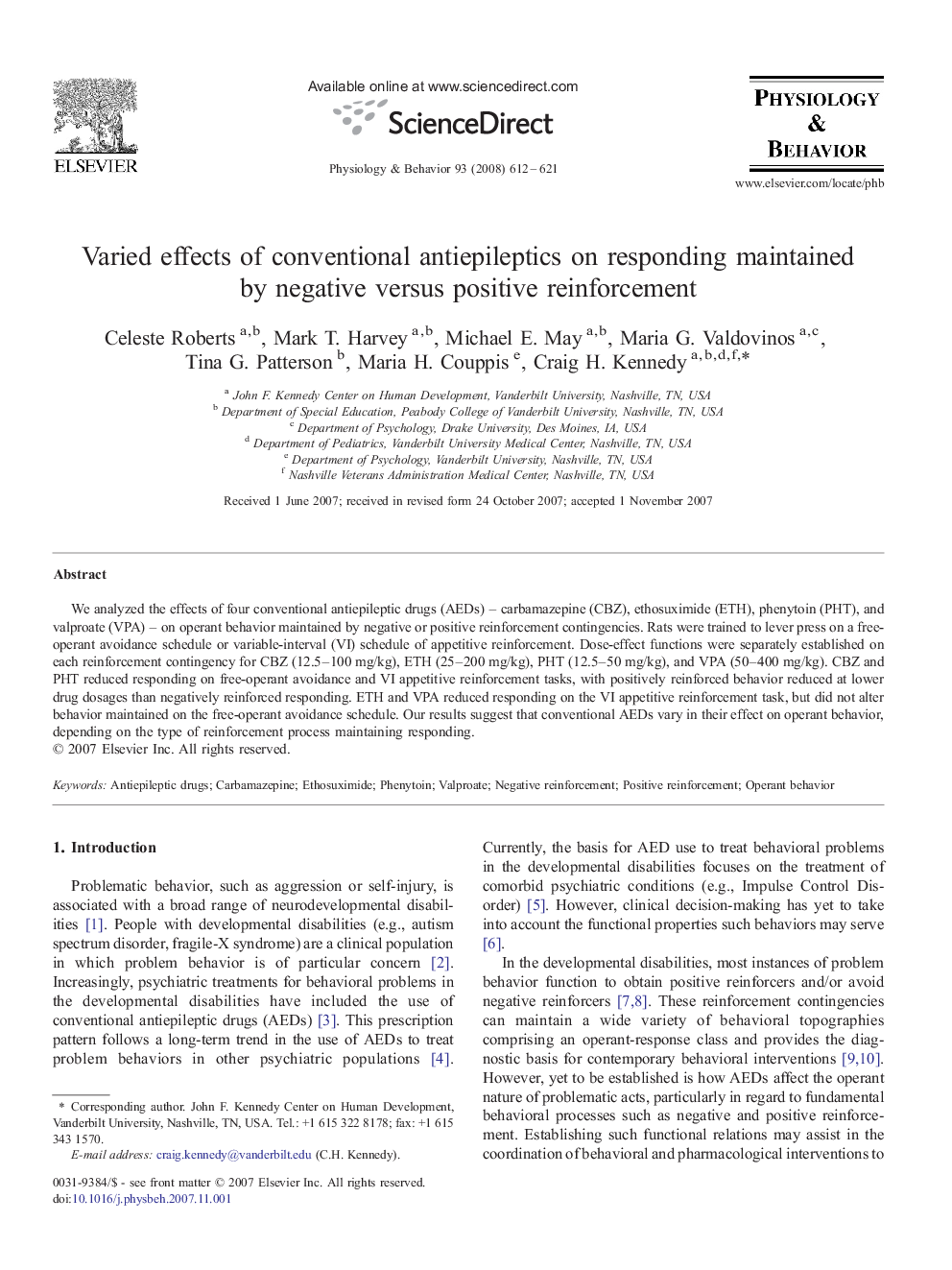| Article ID | Journal | Published Year | Pages | File Type |
|---|---|---|---|---|
| 2845699 | Physiology & Behavior | 2008 | 10 Pages |
Abstract
We analyzed the effects of four conventional antiepileptic drugs (AEDs) - carbamazepine (CBZ), ethosuximide (ETH), phenytoin (PHT), and valproate (VPA) - on operant behavior maintained by negative or positive reinforcement contingencies. Rats were trained to lever press on a free-operant avoidance schedule or variable-interval (VI) schedule of appetitive reinforcement. Dose-effect functions were separately established on each reinforcement contingency for CBZ (12.5-100Â mg/kg), ETH (25-200Â mg/kg), PHT (12.5-50Â mg/kg), and VPA (50-400Â mg/kg). CBZ and PHT reduced responding on free-operant avoidance and VI appetitive reinforcement tasks, with positively reinforced behavior reduced at lower drug dosages than negatively reinforced responding. ETH and VPA reduced responding on the VI appetitive reinforcement task, but did not alter behavior maintained on the free-operant avoidance schedule. Our results suggest that conventional AEDs vary in their effect on operant behavior, depending on the type of reinforcement process maintaining responding.
Keywords
Related Topics
Life Sciences
Biochemistry, Genetics and Molecular Biology
Physiology
Authors
Celeste Roberts, Mark T. Harvey, Michael E. May, Maria G. Valdovinos, Tina G. Patterson, Maria H. Couppis, Craig H. Kennedy,
